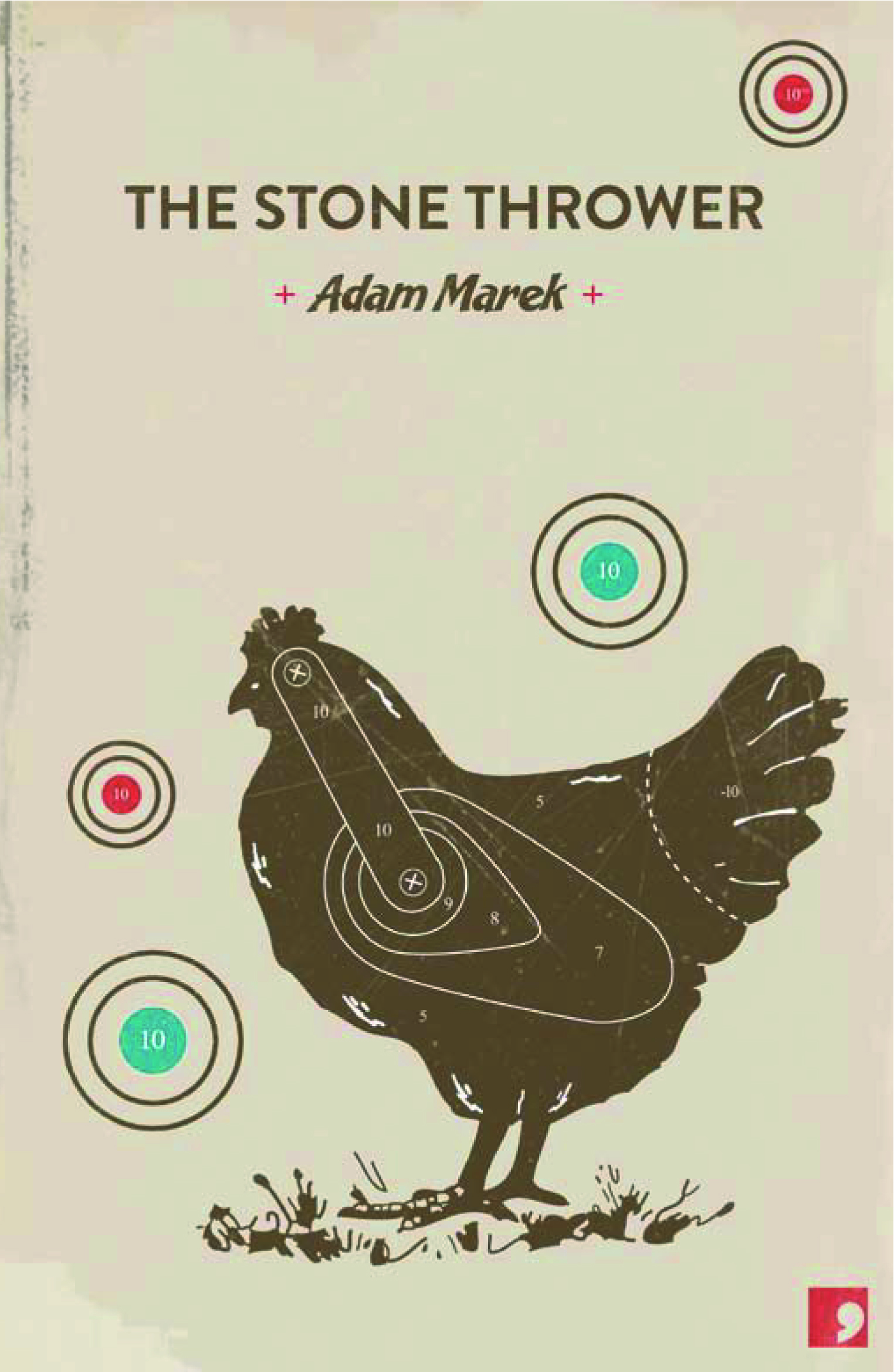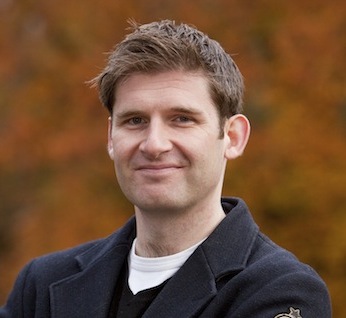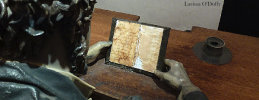
photograph by John Byer
Lela Tredwell recommends Adam Marek’s much-anticipated second collection, The Stone Thrower, just days before the launch
at the Small Wonder Short Story Festival.
As a creature born with an overactive imagination I am scared of many things: frogs, loud noises, clowns, cutlery, dolls, old pieces of jewellery, dress pins. And, like Adam Marek, whales. A patch of rough skin, a massive eye, and I foresee the big blowhards barging me out the way while I desperately try to swim for safety.
For me, it is not so unlike the fear one gets when someone produces a marvellous meaty collection and then has to follow it. The same matter of life and death. It is fortunate then that Marek has had fate on his side – for he who has told the tale of a 40 litre monkey (even a 39 litre one), shall produce a masterly second collection, as the folk saying goes. And duly Marek has made it so.
 Fans of Marek’s story ‘40 Litre Monkey’ will be pleased to hear that in his new collection, The Stone Thrower, ‘An Industrial Evolution’ sees the reappearance of primates, but now they’ve reproduced, in a roundabout way, and they’re working for a living. We also encounter suspicious storms, choking chicks, healing and sickening new technologies, terrible traditions and a sinister superhero dictator.
Fans of Marek’s story ‘40 Litre Monkey’ will be pleased to hear that in his new collection, The Stone Thrower, ‘An Industrial Evolution’ sees the reappearance of primates, but now they’ve reproduced, in a roundabout way, and they’re working for a living. We also encounter suspicious storms, choking chicks, healing and sickening new technologies, terrible traditions and a sinister superhero dictator.
Surprisingly, in view of Marek’s phallainophobia, we also find water in abundance on the pages of The Stone Thrower. Seas, streams, swamps and even wet tarmac usher in cataclysmic things. Water everywhere suggests that our heads are in the soak, submerged in the story, and we’ll be lucky not to drown.
Each of Marek’s stories is like a plunge pool. How can we fail to feel invigorated with lines like: ‘The empty space we leave on the cliff is like the sound a door makes after its shut’ (from ‘Fewer Things’)? Ah, if only I’d written it. But as a writer, I am not discouraged by my awe. On the contrary, these stories urge me to think braver thoughts. If Marek can face the whales, so too might I.
Adam Marek admits that his “delightful, mischievous little muses” are his sons, and he explores the parent-child relationship in various guises throughout this new collection. In the stories we meet many vulnerable children who are being hunted by physical or meta-physical illnesses and dangers, often accompanied by their angst-ridden parents. In ‘Tamogotchi’ a father makes increasingly more desperate attempts to cure his son’s new generation digital pet from AIDS:
If I locked Meemo in the medicine cabinet, taking away things that
were helping it survive: food, play, petting and the toilet, the AIDS
would get stronger as it got weaker and surrounded by more of its
effluence. The AIDS would win. And when Meemo was dead, it would
either reset itself as a healthy Tamagotchi, or it would die.
Despite its uncanny subject matter, ‘Tamogotchi’ had me chuckling from the sofa, much to the annoyance of the people around me:
“My kid’s got sick,” I said. “One of its arms fell off this morning. Can
you believe it?” … “Jesus,” he said, and then literally ran across a game
of Twister that some kids were playing to grab his son’s Tamagotchi
and check that it was ok.
Throughout The Stone Thrower, Marek masterfully suspends the reader’s belief through the commonality of the human condition and the characters it condemns. In ‘Without a Shell’, Bucky’s Neuro-Linguistics teacher tells him about the think weapons that are ‘something that was science fiction now but on the cusp of reality’. Indeed, many of the stories in the collection seem to teeter upon this verge between the fantastic and the familiar, producing pure pleasure.
 In stories like ‘Dead Fish’ and ‘An Industrial Evolution’, with its unusually bred work force, Marek manages to cram in whole worlds that send us lurching forward into a fast-approaching future. Earlier in the year I too attempted to do this with a speculative future of my own invention, only to find it just wouldn’t fit the form, and so I grew sceptical of the possibilities. Yet, upon reading this collection my faith has been restored. Marek proves that not only can it be done but that the short story should lend itself generously to the genre, encouraging me to try again.
In stories like ‘Dead Fish’ and ‘An Industrial Evolution’, with its unusually bred work force, Marek manages to cram in whole worlds that send us lurching forward into a fast-approaching future. Earlier in the year I too attempted to do this with a speculative future of my own invention, only to find it just wouldn’t fit the form, and so I grew sceptical of the possibilities. Yet, upon reading this collection my faith has been restored. Marek proves that not only can it be done but that the short story should lend itself generously to the genre, encouraging me to try again.
With The Stone Thrower, Adam Marek shows us that every story has its length. Marek is the master of knowing just when to cut us off. After each of the stories I could feel my unconscious screaming at my conscious to reconcile what I’d just read. My two favourites for this feeling were also the two shortest stories. Both end so abruptly, leaving us hanging, but with not a sentence more to be said. In ‘The Stone Thrower’, Marek abandons the reader as Hal fails to save a group of fated chickens from attack. While in ‘The Stormchasers’ a father and son go out to find a tornado, only to later discover one has hit at home: ‘It looks like the end of the world back the way we came. Within the wall of cloud, there’s a heck of a light show.’
Reading Marek’s inspiring second collection makes me yearn to punch harder with my own writing, to leave my reader creased up and wheezing, wondering what the hell hit them and why. Marek shows us that a rich slice of speculative pie can be both dreadful and delicious.
I would recommend this read to anyone, especially those with fears. It’ll give you the courage to face them, perhaps even stare them down, or at the very least, give them a wave from a suitable distance.


One thought on “We Recommend: Adam Marek’s The Stone Thrower”
Comments are closed.